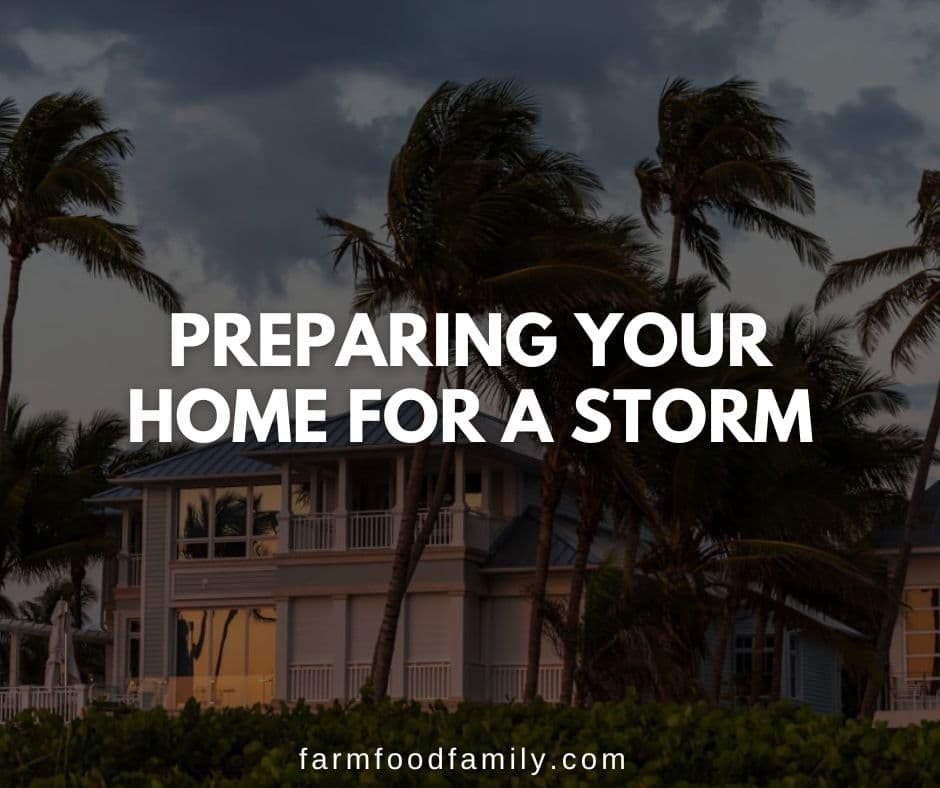With summer approaching, it’s time to prepare your home for oncoming storms. If you live in a temperate area, you probably get hit with heavy thunderstorms several times a year. Safeguarding your home for weather in the following ways can help prevent costly property damage.
1. Sort Out Your Power
One of the first things you can do to prepare your home for storms is to sort out your power. If you live in an area where you routinely lose electricity when thunderstorms hit, it may be a good idea to have a backup power supply for house, such as a generator or solar panels.
These power sources may not run your whole home, but they’ll prevent you from wasting food and losing electronics. Rather than going without electricity for days, grab a backup power supply.
2. Trim Nearby Trees

Second, it’s essential to trim any trees near your home. When storms hit, high wind speeds and pounding rain often cause branches to break and fall on homes, outbuildings, and vehicles. Rather than spending thousands of dollars to make repairs around your property, take an afternoon or two to trim the trees and bushes around your home.
Remove any dead branches or branches that are getting too close to power lines. By cleaning up the trees and shrubbery around your home, you can help prevent costly repairs when the storm is done. A few hours of work will save you a headache later.
3. Clear Your Gutters
Third, check your gutters to make sure they’re clear of debris. When the storm hits, you want your gutters and downspouts to be fully functional to shunt water away from your home. If there’s leaf litter and dirt in your gutters, take a garden trowel and bucket to remove it.
By clearing your gutters of debris, you can ensure water runoff from the storm is directed away from your foundation, rather than accumulating in your basement. If you aren’t able to clean your gutters yourself, consider hiring a contractor to climb up and get them done so you can have peace of mind when the rain comes.
4. Stock Your Pantry
Finally, it’s time to stock your pantry. Depending on the severity of the storm, you may not be able to get to a grocery store for several days. The week before the rain hits, go to the store and pick up the groceries you’ll need for the week, plus a little extra.
As much as possible, try to stock up on nonperishable that don’t require electricity to prepare, as you may not have the power to operate a microwave during the storm.
While it can be tempting to clear the shelves and panic-buy items, it’s essential to only take what you need. Hoarding food and survival supplies only keep them away from other people who need them. When you’re stocking your pantry, make sure you only buy what you need for you and your family to make it through the storm.
Overall, getting through storms is a part of home ownership. By preparing your home and property for harsh rain, you can prevent expensive damages down the line.
FAQs
What should you not do during a storm?
-Don’t try to drive in the storm.
-Don’t walk outside during the storm.
-Stay away from windows.
-Unplug appliances and electronics.
-If possible, go to a lower level of your home.
-Bring in any loose outdoor items.
-Be prepared for power outages.
Why do you need to fill bathtub during hurricane?
If you live in an area that is prone to hurricanes, it is important to take steps to prepare your home in advance.
One of the key things you can do is to fill your bathtub with water. This will provide you with a source of clean water in the event that your tap water becomes contaminated or cut off during the storm.
Should you turn off your TV during a thunderstorm?
Some people believe that unplugging electronics during a thunderstorm will protect them from power surges. However, this is not always the case. If there is lightning close to your home, it can cause a power surge whether your electronics are plugged in or not.
The best way to protect your electronics from a power surge is to invest in a surge protector. A surge protector will absorb the excess electricity and protect your electronics from being damaged.
Should you unplug everything during a storm?
Solar flares and coronal mass ejections (CMEs) can disrupt the Earth’s magnetic field and cause a geomagnetic storm. These storms can cause power outages, damage electrical equipment, and interfere with satellite communications.
To protect your home and belongings, you should unplug all electronic devices and appliances during a storm. This includes your television, computer, and any other devices that are plugged into an outlet.
You should also disconnect any external antennas or cables that are connected to your home’s electrical system. By taking these precautions, you can minimize the risk of damage to your electronics and keep your family safe during a storm.

